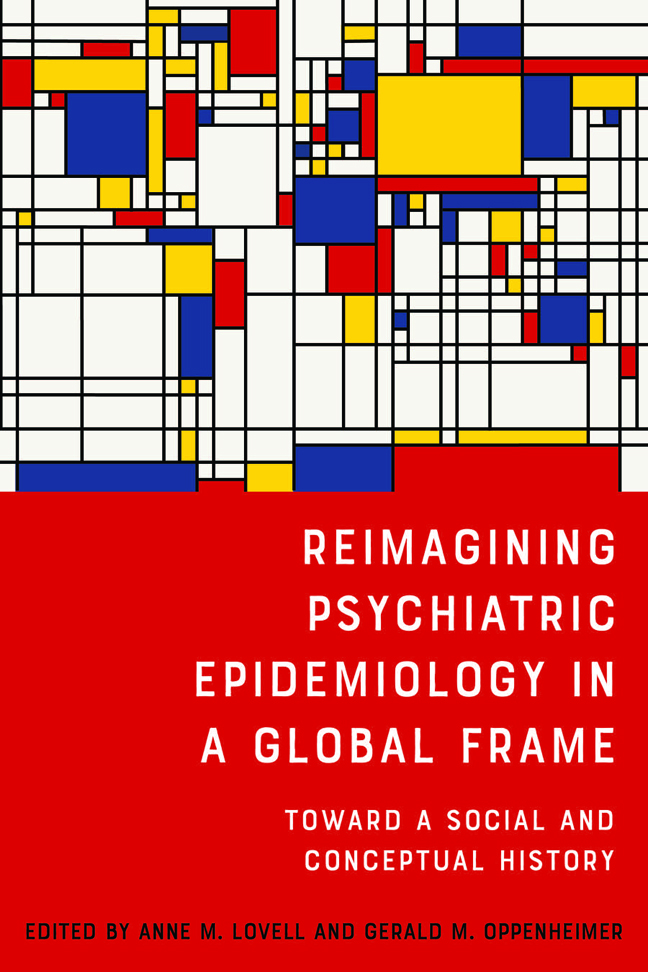Book contents
- Frontmatter
- Contents
- Acknowledgments
- Introduction
- Part One Constructing Mental Health Utopias and Dystopias with Epidemiology
- Part Two Troubling the Boundaries of Psychiatric Epidemiology
- Part Three Decentering Psychiatric Epidemiology in a Postcolonial World
- Selected Bibliography
- Notes on Contributors
- Index
Six - Of Fairies, Robots, Witches, and Zombies: Conceptualizing a History of Cross-Cultural Psychiatric Epidemiology in Nigeria
Published online by Cambridge University Press: 15 February 2024
- Frontmatter
- Contents
- Acknowledgments
- Introduction
- Part One Constructing Mental Health Utopias and Dystopias with Epidemiology
- Part Two Troubling the Boundaries of Psychiatric Epidemiology
- Part Three Decentering Psychiatric Epidemiology in a Postcolonial World
- Selected Bibliography
- Notes on Contributors
- Index
Summary
Introduction
The 1950s and 1960s were a time of significant promise for the development of psychiatric epidemiology around the world. While much of the nascent historiography has focused on the development of methods and projects in Europe and North America, it is also well recognized that the field had global ambitions during those decades. Through a number of international collaborative networks, preliminary efforts were made at developing methods for cross-cultural psychiatric epidemiology in a variety of non-Western contexts. This chapter will examine the historical development of psychiatric epidemiology in Africa, with particular emphasis on Nigeria and its relationship with two different projects: the Cornell-Aro project, which conducted a community study of symptoms of mental disorder in Yorubaland in 1961 to compare results with the famous Stirling County study in Canada, and the World Health Organization's International Pilot Study of Schizophrenia (IPSS), carried out from 1968–69, in which the same region served as a field research center contributing to the establishment of a methodology for the cross-cultural identification of a specific diagnostic entity.
This chapter uses these two projects to make three broad arguments for the types of inquiries historians should be making in developing a global history of psychiatric epidemiology. First, this chapter argues that psychiatric epidemiology in Nigeria (and Africa more generally) has a multifarious history that complicates narratives of sources and origins at the same time that it recognizes the complex synergy between the “global” and “local” in the construction and dissemination of scientific knowledge. Second, in making the first argument it becomes clear that such a history must focus on the ways that conceptions of “culture” and cultural content are mobilized in service of the universal aspirations not only of these particular projects, but also psychiatric epidemiology more generally in postcolonial spaces. Third, this chapter demonstrates that a fruitful way to examine the mobilization of culture is through the tools of cross-cultural psychiatric epidemiology itself: namely the surveys and questionnaires that generate data about symptom prevalence and categorization.
Neither the Cornell-Aro project nor the International Pilot Study of Schizophrenia were designed to produce definitive epidemiological data about mental illness in specific communities. They were established primarily as experiments in developing methodologies for psychiatric epidemiology that could be standardized and replicated in diverse cultural landscapes.
- Type
- Chapter
- Information
- Reimagining Psychiatric Epidemiology in a Global FrameToward a Social and Conceptual History, pp. 193 - 213Publisher: Boydell & BrewerPrint publication year: 2022

